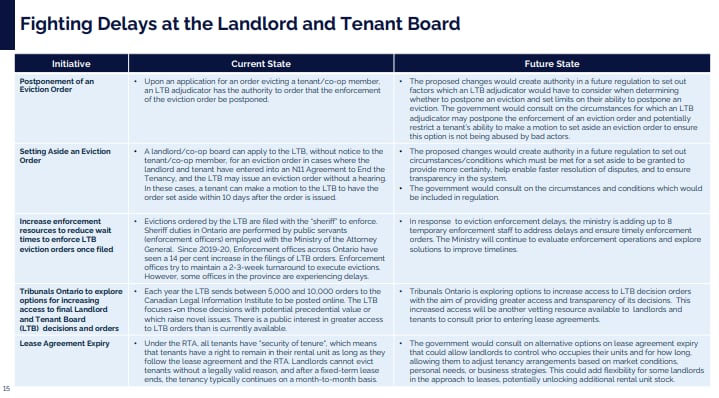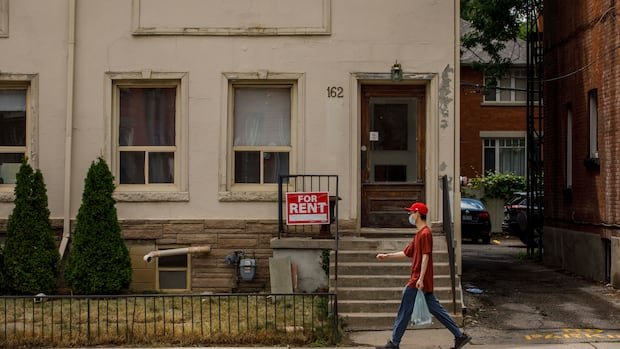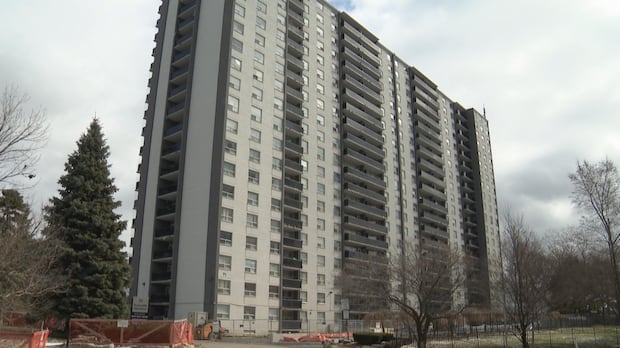New housing legislation planned in Ontario could open the door to ending rent control and open-ended tenancies across the province, advocates warn following a recent proposal by Premier Doug Ford’s government.
The Ford government on Thursday unveiled a new housing bill that it says would speed up approvals and allow developers to build homes more quickly.
But hidden in the legislation is a proposal for “alternative options to lease expiration rules that could allow landlords to control who occupies their units and for how long,” including through adjustments to rental agreements based on “market conditions, personal needs or business strategies,” according to the province’s briefing slides on Thursday.
Housing advocates say the legislation, if passed, will hurt long-term tenants and vulnerable renters, such as seniors and students, across Ontario.
“Everyone is panicking. This is not the solution to affordable housing,” said Stacey Semple, a volunteer organizer with Acorn, a nonprofit that advocates for various social justice issues, including affordable housing.
“It’s taking away tenants’ rights,” he said, referring to Ford. “Landlords get a free pass to evict long-term tenants, mostly because they want to charge more rent because it’s more economically viable.”
Today there are many signs that we are in a renter’s market. Industry observers say 2023 was the year of peak prices, with the average rent for a room hovering around $2,500 a month. Last year, that began to change, in part due to increased housing supply, a weakening job market and fewer people moving to the province. Incentives even started appearing on tenants’ websites. Liv Rent’s head of marketing, Matisse Yiu, explains why.
‘Security of tenure’ at risk: advocates
Currently, tenants are protected by what is called “security of tenure,” which gives them the right to remain in a rental unit as long as they comply with the lease and residential tenancy law.
It also allows them to continue a month-to-month rental after a fixed-term lease ends. Landlords cannot evict tenants without a legally valid reason.
But if the legislation passes, Semple says Toronto and other areas’ large renter populations will be especially affected. According to Statistics Canada’s 2021 census data, 48 per cent of Toronto’s population are renters.
A new report sheds light on a decades-old problem in Toronto: so-called “financial landlords” and their effect on Toronto’s rental market. CBC’s Chris Glover digs into the data to find out why they’re making the affordability crisis worse.
She says without affordable housing options, more people could be evicted from their rent-controlled homes and end up homeless.
“[Ford] “It’s actually going to create more camps…I’m not necessarily surprised that Ford is focused exclusively on profits and the bottom line.”
In an emailed statement, a spokesperson for the province said consultations are underway on options for lease expiration rules, but that it will continue to “protect tenants while supporting landlords, including parents who rely on rental income to help pay their mortgage.”
“Tenants will continue to have strong protections across the province, including against significant rent increases, keeping the 2025 rent increase guidance below the 2.5 per cent inflation rate,” the statement said.
The proposal ‘attacks all’ tenants: tenant
When she first came across the proposal, long-term tenant Leigh Beadon took to social media to share what she called a “shocking” discovery. His post on X has more than 100,000 views, and several other concerned tenants weighed in, he said.
“[This] “It directly attacks every single tenant in Ontario and I think people who in the past haven’t paid much attention to the ins and outs and details of tenants’ rights immediately understood that this was going to impact them directly,” he said.
Beadon said it is “unimaginable” to consider that this proposal could force him to leave the apartment and community he has called home for nearly 20 years.

Tenants on long-term leases often pay well below market rate, he said, considering many live in older, rent-controlled buildings.
Without rent control, tenants will be forced to pay much more or move to “less desirable neighborhoods” further out of the city, Beadon said.
“People who are on fixed incomes, such as seniors or people receiving disability benefits, many of whom [have said] Security of tenure is the only thing that keeps them in their homes,” he said.
“It’s the only way they can know they have a place to sleep tomorrow night and we know homelessness is out of control in Ontario.”
Tenants Get 1 Year Warranty, Spa Gets 99 Years: Critical
At an unrelated news conference on Friday, Toronto Mayor Olivia Chow said landlords could gain “enormous” powers under the proposal.
“There are considerations, consultations, but there has to be justice,” he said.
Adil Shamji, housing critic for the Ontario Liberal Party, called Ford’s latest legislation “a petty bill that ignores the injustices” tenants face and could lead to bad faith evictions.
“Security of Tenure allows tenants in good standing to remain in their home until they wish to move out,” Shamji said in an emailed statement.
“Only in Doug Ford’s Ontario can hard-working, reputable tenants get only a one-year lease, while a foreign spa company in Ontario Place gets a guarantee for 99.”
Catherine McKenney, shadow housing minister for the Ontario NDP, said families across Ontario could face mass evictions if rent controls are removed.
“Housing has never been more expensive in Ontario; 800,000 people can’t find work, and now Ford is making things even worse. Is the Prime Minister’s only goal to make life as expensive as possible for Ontarians?” McKenney said, adding that the province is last in the country when it comes to housing construction.
“The answer is to build more housing, not trample on tenants’ rights. Ford has a responsibility to prevent Ontarians from being left out. We need real rent control now.”
Thorncliffe Park tenants and their landlords have reached “an amicable agreement” after years of protests over higher-than-recommended rent increases. CBC’s Dale Manucdoc has the details and reaction.
For Beadon, the proposed legislation shows that tenants must advocate for themselves.
In recent years, tenants have “won big victories” organizing strikes and protests over rents, something tenants should consider if the Ford government moves forward with its proposal, he said.
“That’s one of the few things that gives hope to Ontario renters right now,” Beadon said. “That’s where we should all focus our efforts together as a tenant class and let the government know that we are not going to allow them to do this.










